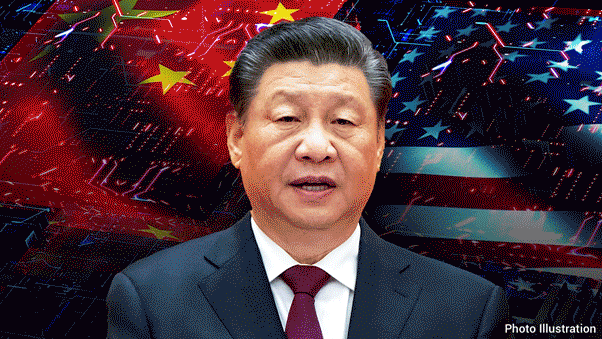AI prodigy warns lawmakers on China’s ambitions: ‘AI is China’s Apollo Project’
A 26-year-old self-made billionaire whose company is helping the Pentagon adopt artificial intelligence technology warned this week the Chinese government is spending three times as much as the U.S. government is to become the world’s undisputed AI leader.
“The country that is able to most rapidly and effectively integrate new technology into warfighting wins. If we don’t win on AI, we risk ceding global influence, technology leadership and democracy to strategic adversaries like China,” Alexandr Wang, CEO of Scale AI, told members of the House Armed Services Committee on Tuesday.
“The Chinese Communist Party deeply understands the potential for AI to disrupt warfare and is investing to heavily capitalize on the opportunity,” he said.
PENTAGON’S AI PLAN MUST INCLUDE OFFENSE AND DEFENSE UNDER HOUSE-PASSED BILL: ‘DOD HAS TO CATCH UP’
Wang, raised by two parents who worked as nuclear physicists at Los Alamos National Laboratory, started his company in 2016 after dropping out of MIT when he was 19. Scale AI was recently valued at more than $7 billion, and Wang told lawmakers that he saw the scale of China’s ambition during an investor trip there four years ago.
“China was making rapid progress developing AI technologies like facial recognition and computer vision and using these for domestic surveillance and repression,” he testified. “China is investing the full power of its industrial base for AI.”
“This year, they’re on track to spend roughly three times the U.S. government on AI,” he added. “The PLA is also heavily investing in AI-enabled autonomous drone swarms, adaptive radar systems, autonomous vehicles, and China has launched over 79 large language models since 2020.”
“AI is China’s Apollo Project,” he concluded.
AMAZON TECH GURU: EATING LESS BEEF, MORE FISH GOOD FOR THE PLANET, AND AI HELPS US GET THERE

But while China is gunning to take the lead in the race for AI domination, Wang cited several reasons why the U.S. still has the edge today. He said the U.S. is still the “place of choice” for the world’s most talented AI scientists and said America’s access to data gives it another important edge.
“When it comes to data, I actually also agree that we have a potential very powerful advantage here, specifically when it pertains to military implementations,” he said. “In America, we have the largest fleet of military hardware in the world.”
Wang said that fleet generates 22 terabytes of data every day – data that can be harnessed to train AI and give the U.S. an “insurmountable data advantage when it comes to military use of artificial intelligence.”
Wang did say, however, that the U.S. needs to take rapid steps to ensure it takes advantage of this oversupply of data. He said collecting data is a new reality that the Pentagon must adapt to if it’s going to stay ahead on AI, and that processes need to be put in place so this data can be collected and turned into “AI-ready data sets.”
LAWMAKERS RATTLED BY AI-LAUNCHED NUKES, DEMAND ‘HUMAN CONTROL’ IN DEFENSE POLICY BILL

“I think this is one of the most important things that we can do to set up America for decades and decades of leadership in military use of AI,” Wang said.
“Every service, every group, every program needs to be thinking about how… all of the data that their programs are collecting and that are being generated within their purview, how can they ensure that all this data flows through into one central data repository, and then are prepared and tagged and labeled for AI-ready use down the line,” he said.
But he stressed that China cannot be ignored and rejected the possibility that the U.S. and China might be able to work together on AI since both nations might feel threatened by AI systems that seek to take over governance of their citizens.
“I think it would be a stretch to say we’re on the same team on this issue,” Wang said, noting that China’s first instinct was to use AI for facial recognition systems in order to control its people. “I expect them to use modern AI technologies in the same way to the degree that they can, and that seems to be the immediate priority of the Chinese Communist Party when it comes to implementation of AI.”
Read the full article Here


